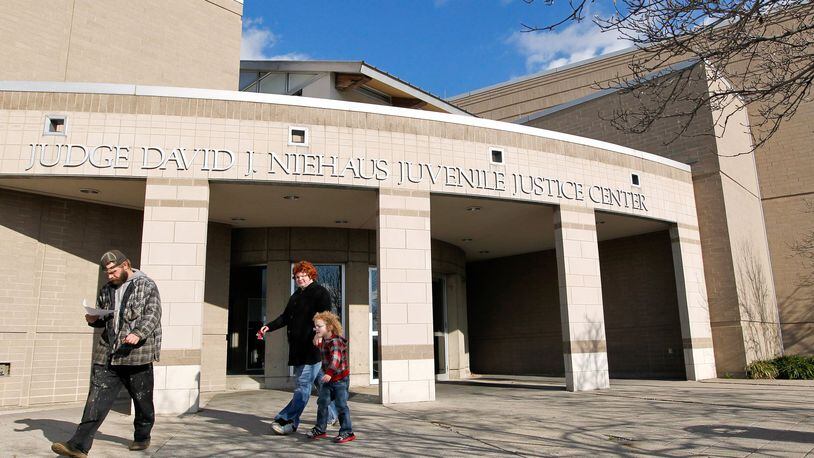Morrison said he is very frustrated with the number of adoptions that are being required — they have gone from 35 in 2008 to a projected 82 this year — because parents can’t stay off drugs.
"We know heroin is a difficult addiction, but when we talk about the victims of the heroin epidemic, from my way of thinking, the victims are absolutely the kids of the heroin addicts," Morrison said. "They're not asking to be part of this. They're not asking to come home after school and find mom in the bathroom passed out with a needle in her arm."
Clevenger said for a number of years they handled drug addiction cases through the use of an administrative hearing officer. Then they received a five-year $2.5 million federal grant, so from 2007 to 2012 they were able to operate a true family drug court, until the funds went away.
“That funding allowed us to do a lot of things and really take our family drug court to a Cadillac model, more than what we had been dealing with,” he said.
He said the drug of choice back then was crack cocaine and other drugs like that, not heroin, which is a much tougher addiction to manage.
“One of the differences with drug court is to provide both sanctions and rewards to parents based on their behavior. That’s one of the reasons we feel it is an important tool for us to have…,” Morrison said. “One of the reasons we believe it will work better is in drug court both the frequency and the intensity of the court’s involvement increases dramatic. So rather than a case being heard by a magistrate every four to six months it’s being heard a couple a times a month. For people addicted to heroin a four-to-six month period of time might as well be four-to-six years.”
The county already operates a drug court through the felony common pleas division of the court, but the children services cases aren’t felonies and can’t be treated as such.
Clevenger said they are still working out details of what the drug court will look like and cost but he said he is certain an additional magistrate will be necessary and since his courthouse is bursting at the seams already, they will need to use a courtroom in the historic courthouse downtown.
Morrison said a good chunk of the cost of treatment can be paid with Medicaid and more people are now eligible through the expansion. He said that is how they are paying for treatment for drug addicted parents now, but the process isn’t nearly as effective as a drug court would be.
Morrison said he penciled in money for a drug court coordinator in his 2017 budget because if they are able to get the project off the ground he didn’t want to be left without staff. He said his biggest concern are the costs associated with the juvenile court and that is why he is seeking grant funding.
Rasmus said there are a number of grants out there but the court would have to be a fully certified specialty court, another cog to contend with in the planning stage.
“I think what we’re trying to do now is look at what it would take to get this going, get a court established and certified and then we can work on the capacity issues, the tweaking of the processes that are needed to optimize the functioning of this court…,” Rasmus said. “We’re just going to have to iron out the funding aspects to it. See what we have for resources among ourselves or grants.”
Morrison said the previous drug court had the capacity for 24 to 30 parents and the national consultant they have been working with is going to be sending them sample screening forms so they can get a feel for how many people they need to get into the court. He said if it works like the new Family Preservation program does, cases will be open for shorter periods of time so more people can be added.
“If a case is open for less time then you can take another case to replace it,” he said. “So if it works the way I’m hoping it’ll work, then if that proves to be true, then we could rapidly expand the capacity of it without worrying about the cost because it would be ultimately kind of paying for itself.”
The trio plan to take a trip to nearby Clermont County to view its drug court operations as part of their planning process. Stark County, which is roughly the size of Butler County, is also instituting a family drug court.
Stark County Juvenile Court Administrator Diane Wilson said their judge wants the drug court to be online Jan. 1, but since they are still hammering out details she couldn’t hazard a guess on the cost.
History of Butler County Adoptions
2008 — 35
2009 — 52
2010 — 43
2011 — 78
2012 — 41
2013 — 51
2014 — 56
2015 — 83
2016 — 82 (projected)
Source: Butler County Children Services
About the Author
